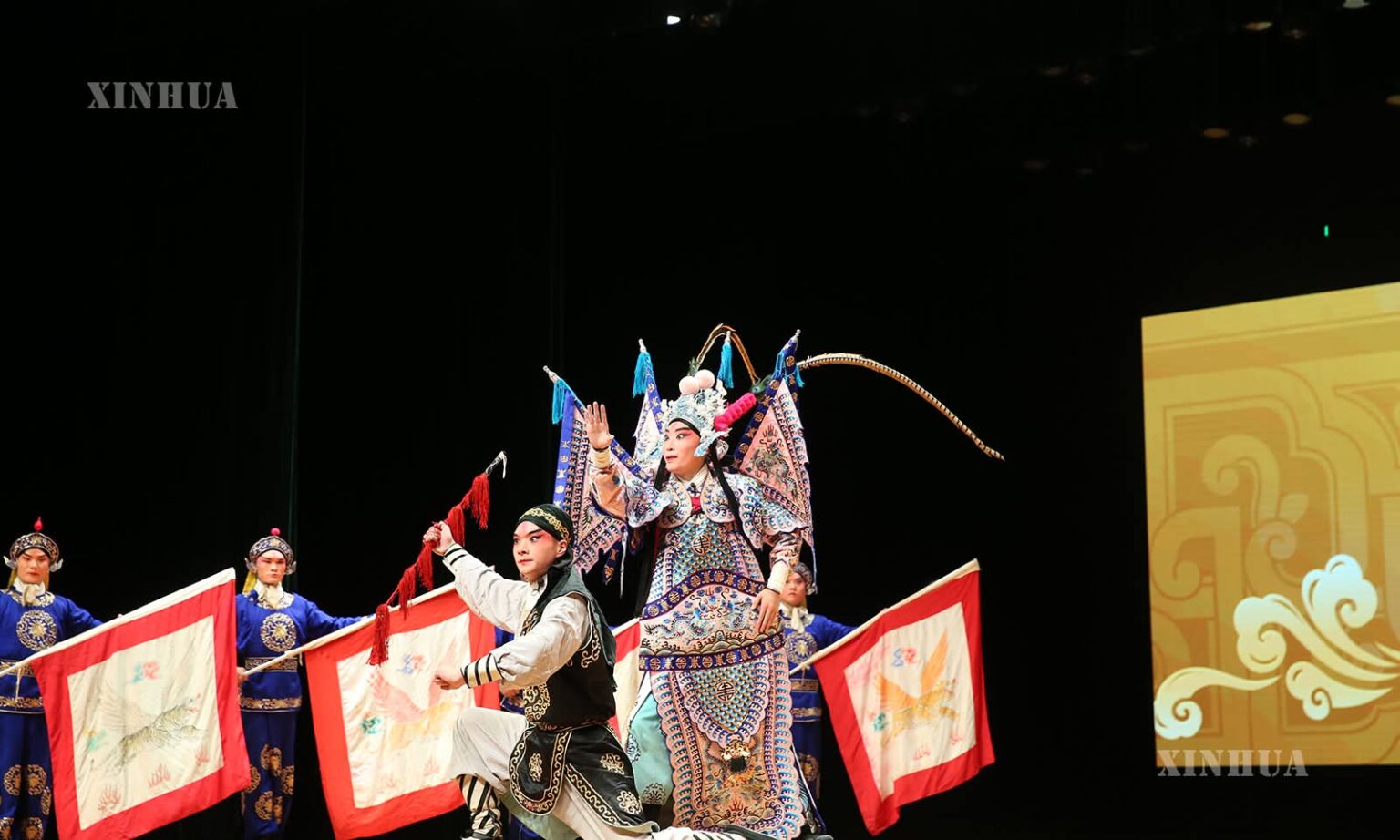Chinese Ambassador to Myanmar Ms Ma Jia said that the arts of theatrical performance are a precious spiritual treasure of a nation and also form part of humanity’s intangible cultural heritage.
The Chinese Ambassador made the remarks at the art performance ceremony at the National Theatre in Yangon on 20 September to commemorate the 76th anniversary of the founding of the People’s Republic of China and the 75th anniversary of the establishment of China-Myanmar diplomatic relations.
She added that China and Myanmar are both nations with ancient cultural heritages, and the arts of theatrical performance of the two countries have long histories. She noted that the two sides have carried out deep exchanges in culture, fine arts, education, religion, media and other arenas, thereby building a strong bridge of people-to-people connectivity.
At the art performance, the “Jinghua” opera, a major local opera genre from Zhejiang Province in eastern China, was staged. Likewise, artistes from the Department of Fine Arts under Myanmar’s Ministry of Religious Affairs and Culture also performed key scenes from the traditional “Ramayana” drama, including the “Rama Chasing the Golden Deer” scene and the “Demon King growing blossoming plants” scene, showcasing cultural exchanges between the two countries.
The ‘Wu Opera’, also known as ‘Jinghua’ Opera, is the main traditional opera of Zhejiang Province in eastern China and has a history of over 500 years. The Wu Opera troupe performed its entertainments in Germany, Spain, and Andorra this year. The troupe presented its performances more than 200 times in 26 countries. Such an entertainment was the first of its kind in Myanmar.
The Zhejiang Wu Opera Troupe, under the Wu Opera Research Institute of Zhejiang Province, performed its entertainment for the audiences at the National Theatre in Yangon at 3 pm yesterday.
MT/TTA
#TheGlobalNewLightOfMyanmar

